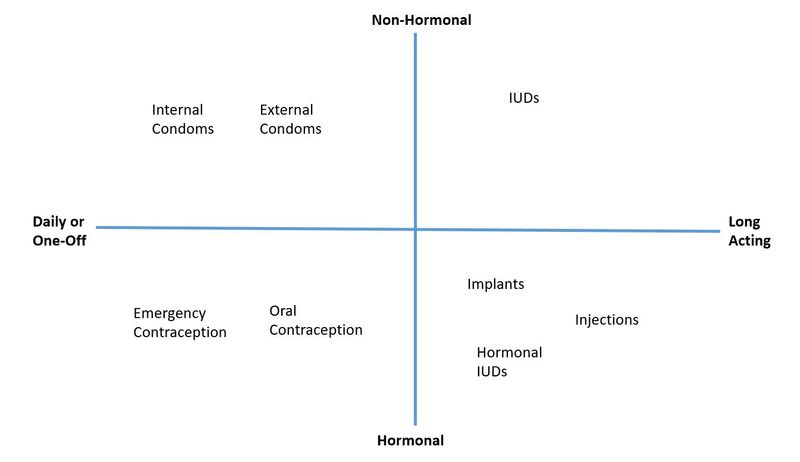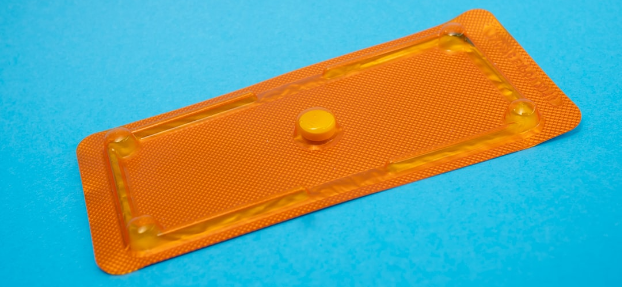There's no 'one size fits all' when it comes to contraception.
The choice of contraceptive method is extremely personal. There are a lot of factors at play, including:
Cost
Effectiveness
Use
Below, you will find a list of popular forms of contraception and details about their use, and side effects.

Let's Dive In
Two ways that people can think about contraception are Hormonal vs. Non-Hormonal, and Long Acting vs Daily/One-off Use.

Hormonal contraception typically use a combination of Estrogen and Progesterone to regulate fertility, although a Progesterone-only option is available for folks with sensitivities. In either option, hormones may cause side effects. They also help some women in different ways, for example by reducing menstrual cramps or regulating acne.
Long-Acting contraception methods will often cost more up front, but they last longer, making them less expensive in the long-term.
Condoms
External Condoms
Low Cost | 82% Effective | Use Every Time
External condoms are also the only effective protection against Sexually Transmitted Infections (STIs), and should be used in addition to any other contraceptive method.
Internal Condom
Low Cost | 79% Effective | Use Every Time
Although internal condoms can also help prevent STIs, they have a lower success rate, since they will only be effective against STIs when inserted correctly.
Oral Contraception
Mid-Cost | 91% Effective | Taken Daily
Pills vary in their levels of estrogen and/or progesterone depending on the type your healthcare provider prescribes.
Injection
Mid-High Cost | 94% Effective |3 Months
Also referred to Depo-Provera, the Depo shot, or DMPA, these injections must be administered by a healthcare provider.
Intrauterine Device
High Cost | 99% Effective | 3-12 Years
Small piece of flexible T-shaped plastic, that is inserted into the uterus by a healthcare professional. IUDs come in both hormonal and non-hormonal varieties. Although extremely effective, this option may not be available for women with a small uterus.
Implants
High Cost | 99% Effective | Up to 5 Years
Thin plastic rod, surgically inserted under the skin, that releases Progestin.
Emergency Contraception
Although it is not recommended as a regular contraceptive method, emergency contraception can prevent pregnancy up to 5 days after unprotected sex.
There are two kinds of emergency contraception:
Ulipristal acetate which is effective up to 120 hours
Levonorgestrel, which is effective up to 72 hours after sex

IUDs can also be used as a form of Emergency Contraception if inserted within 120 hours of unprotected sex.
The sooner you take action, the better.
Take Action

Feeling ready to make an informed decision about your contraception?
Great! Your next step will depend on what method you pick. For barrier methods (like condoms), check out your local drug store, grocery store, or family planning clinic to stock up! For hormonal methods, including the Copper IUD, make an appointment with your healthcare provider to find out more.
Still have questions?
Planned Parenthood: What Birth Control Is Right for Me? https://tools.plannedparenthood.org/bc/birth_control_quiz
Your feedback matters to us.
This Byte helped me better understand the topic.
